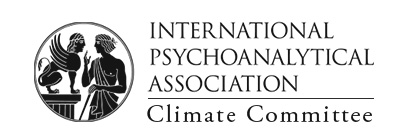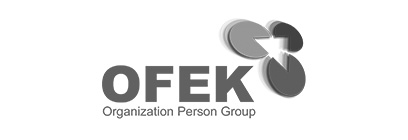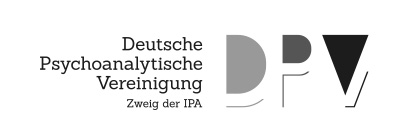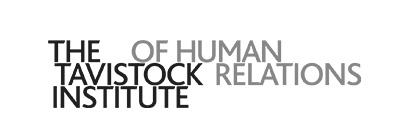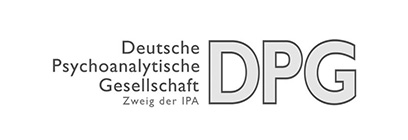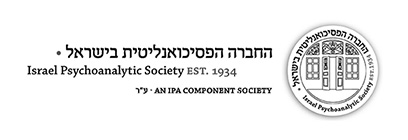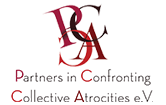The Self-Imposed Atrocity of
Climate Change:
The Human Factor
6-8 September 2024 Online

PCCA – Partners in Confronting Collective Atrocities
invites you to participate in its 2024 Experiential Conference Online
Over the past 30 years, PCCA has offered various “learning from experience” events to explore individual and societal processes in the occurrence of atrocities. Our learning from COVID19 and from so many other environmental and ecological catastrophes, is that continuous denial will just bring us closer to a self-imposed atrocity. Have we given up on taking ownership of these problems? Could the human factor still play a preventative and constructive role in the emerging climate crisis?
This 2024 PCCA conference in Thessaloniki aims to provide experiential learning opportunities and the setting within which these questions can be examined.
If there’s no one around in the forest to hear it, does it make a sound?
It seems that the tree of climate change has fallen in the forest, and its sound was clearly heard, but unconscious and systemic processes still prevent us from really listening and acknowledging the threat and its fatal consequences.
In March 2023 the UN Intergovernmental Panel on Climate Change published a harsh evidence-based report that accused humans of causing global warming and warned that its consequences threaten them and the planet unless a rapidly closing window of opportunity to secure sustainability is taken.
Although human beings play a key factor in the climate change drama, their voices are rarely heard. They remain silent and helpless in their role of prevention. The UN and other world powers that have taken charge of this challenge have focused mainly on corporations, organisations and nations, that so far, have been incompetent in their efforts to reduce or eliminate the threat.
The history of wars and atrocities teaches us that where people remain bystanders, they are doomed. Given this contemporary issue, this is the self-imposed atrocity of climate change.
PCCA – Partners in Confronting Collective Atrocities is an organisation that works towards developing strategies to engage with the legacy of past and present atrocities so as to open up possibilities for a more hopeful future.
If you are:
- Concerned about global warming and the climate crisis
- Wondering why most people are passive as bystanders in our self-fulfilling prophecy of climate destruction
- Curious and excited about exploring the psychological processes and group relations dynamics that are inherent in this process
then you should participate in this PCCA experiential conference on climate change!
ABOUT THE CONFERENCE
“Climate Prophets” warn of the catastrophic consequences of human behaviour regarding the earth, but we and “they” would not listen. The climate crisis narrative puts human beings in the roles of perpetrators, bystanders, and victims; none of these roles serve to prevent the threat nor to motivate people to build an effective defence for protection.
Perpetrators: humans are blamed for being the main contributors to the climate crisis by favouring greed and hedonism over responsibility and compassion: by burning fossil fuels, enhancing industrial development, producing too much-polluting waste, and overusing or abusing land, water, and forestry resources.
Bystanders: people are aware of the hazards of obesity, smoking, and other harmful personal behaviours; nevertheless, they find it challenging to manage and prevent illnesses even for their own sake. Therefore, preventing global catastrophe seems to be an impossible task to an even greater degree. Humans are no longer trusted to act and avoid societal threats. There is, therefore, an expectation that governments and regulators will take enforcement actions, thus accentuating the position of humans as dependent, passive and helpless bystanders.
Victims: The forecast of apocalyptic climate change creates a sense of helplessness, anxiety, and fear of extinction. Humans perceive themselves as victims, condemned to death.
To move away from these positions, we need another language that provides ways in which the use of personal authority or agency can enable the individual to take up a role of active citizen to confront atrocity in the service of change.
PCCA has been engaged in this kind work for many years. PCCA grew out of the recognition of a group of German and Israeli psychoanalytic colleagues that the legacy of the Holocaust seriously constrained their ability to relate to and work with each other. Experiential working conferences, sometimes called the “Nazareth” Conferences, began as a response to this challenge. Developed at the Tavistock Institute, London, the Tavistock Group Relations model, which integrates psychoanalytic and systems approaches, was specially adapted to create a setting where experiences relating to the Holocaust that are ordinarily disowned could be discovered, voiced, and comprehended.
Subsequent activities of PCCA retained their roots in the events of the Holocaust. However, they extended their work to specific groups and complex situations, like the Israeli-Palestinian conflict, the challenges of Europe in a globalised world, and more recently, the COVID crisis, the war in Ukraine, and contemporary threats to democracy around the world.
Method
The “here and now” experiential model is a unique way to explore, learn and apply insights for understanding history and confronting the future. This type of inspirational learning derives from the idea of the “Learning from Experience Conference”, in which, for several days, a temporary educational organisation is created that provides opportunities for its participants – members and staff – to observe, inquire, and explore personal and organisational processes as they unfold during the conference. This unique process enables participants to develop insight into how the burdens of the past are alive within us, and how to move on to a more hopeful future. We believe such individual movement fosters group movement, and PCCA’s experiential conferences will continue serving these aims.
The temporary learning organisation is designed by the collective management of the conference, consisting of experienced consultants who facilitate its process. The participants will find many opportunities to explore different types of group experiences and learning challenges through plenaries, large groups, small groups, organisational events, and review and application groups. Each of these constructs is a constituent part of the temporary organisation and the resources that the conference supplies for learning and co-creation.
Rationale
Less than a century after World War II, warning signs about extinction are seen again, both with an internal self-imposed atrocity, like the climate crisis apocalypse, or potentially with the future of an overwhelmingly powerful AI, and with the external threats of atrocity through nuclear war that have suddenly returned to the European discourse through the Russia-Ukraine and other conflicts.
This current PCCA experiential conference intends to use the tradition and methods of PCCA group relations psychoanalytic-systemic thinking, for confronting issues linked to the climate crisis and its related human factors.
Primary Task
The Primary task of the conference is: To explore, study and reveal the human factors in the generation and prevention of the self-imposed atrocity of climate change, with a view to moving forwards.
Language
The working language of the conference is English. However, in groups or situations where everyone present speaks another common language, that language can also serve as the working language.
The conference is open to individuals and professionals, with or without previous experience in this kind of work, who are concerned, curious, and ready to explore issues, dilemmas, and societal processes that have an impact on the human factor of the climate change crisis and affect humanity as a whole. Some of our PCCA participants are psychoanalysts, psychologists, psychotherapists, consultants, coaches, executives in the private and public domain, social and environmental scientists or activists, and others are concerned citizens who wish to learn experientially from what this kind of conference offers.
STAFF
Staff will be drawn from the list below.
They are collectively responsible for managing the conference
and will take up consultant roles in the different events.

Oren Kaplan | PhD
Director
Professor of Psychology (PhD) | MBA, Economist | Clinical Psychologist, Private clinic | Researcher in trauma and resilience | Chair, Positive Psychology Program; Chair, Environmental, social, and governance (ESG) Management Program, LAHAV, Tel Aviv University | Former President, College of Management, Israel | PCCA Board Member | Israel
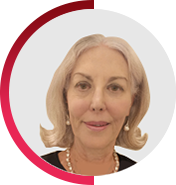
Olya Khaleelee
Associate Director
Is a corporate psychologist and organisational consultant with a particular interest in leadership, and organisational transition and transformation. She is currently Chairwoman of OPUS: an Organisation for Promoting Understanding of Society, is a professional partner of the Tavistock Institute and was the first female director of the Leicester Conference on the theme of Authority Leadership and Organisation. She has published extensively in the areas of leadership and system psychodynamics in organisations, and beyond, into society. She has co-authored two books with Halina Brunning, the first entitled: “Danse Macabre and other stories – A psychoanalytic perspective on global dynamics”, published in 2021, and last year, they co-edited a second book entitled “The Covid Trail – Psychodynamic Explorations”, both published by Phoenix, now Karnac. A third book, Sitting on a Suitcase, is in preparation. | United Kingdom

Leila Djemal | MA
Associate Director for
Pre-Conference Administration
Organization Development Consultant and Executive Coach | Founder, past Co-Director and Instructor, TouchOFEK Professional Development Courses | Graduate, William Alanson White Psychoanalytic Institute Organizational Dynamics Program, New York | Directed and staffed Group Relations Conferences in Israel and abroad. | Held senior positions in advertising and marketing. | Associate, A.K. Rice Institute, USA | Member, Past Board Member, OFEK, Israel | Israel
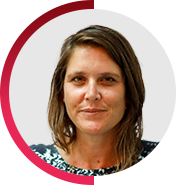
Galia Schutz | MBA
Administrator
Psychodynamic Therapist | Partner, Director of Impact, Marketing & Sales, MOLET – Sustainable Design | Alumna, Heschel Center for Sustainability’s Fellows Program | Galia has extensive experience in entrepreneurship, as well as in the development and management of cross-organizational projects. This includes fostering collaborations with academic institutions, businesses, and civil society organizations | Israel

Leslie Brissett JP | PhD, FRSA
Board Secretary to the International Psychoanalytical Association. Group Relations Programme Director (2018-2023), Company Secretary and Principal Consultant Researcher (2013- 2023) at the Tavistock Institute of Human Relations, London. Director of 7 Leicester Conferences, directed the first Tavistock Conferences in China and the Caribbean. Member of UK Judiciary. | UK, USA
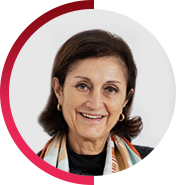
Louisa Diana Brunner | PhD
Leadership and Management Consultant | Executive Coach | Visiting Lecturer and Advance Practice Lead, Tavistock and Portman Professional Doctorate (D10D) and Certificate (D10C) in Consultation and the Organisation | Founding Member, PCCA (Partners for Confronting Collective Atrocities) | Member, OFEK; OPUS; ISPSO | Honorary Member, Il Nodo Group | Fellow, FFI (Family Firm Institute) | Italy

Shmuel Erlich | PhD
Training and Supervising Analyst and former President of the Israel Psychoanalytic Society. | Was Sigmund Freud Professor of Psychoanalysis and Director of the Sigmund Freud Center at The Hebrew University of Jerusalem. | Founding Member of OFEK and PCCA and has directed many of their conferences. | Has published on group and organizational dynamics and authored two books: The Couch in the Marketplace: Psychoanalysis and Social Reality, and Fed with Tears, Poisoned with Milk: The German-Israeli Group Relations Conferences. | Israel
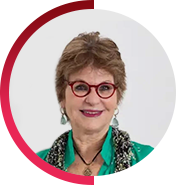
Mira Erlich-Ginor | MA
Training and Supervising Analyst, Israel Psychoanalytic Society | Founding Member and past-Chairperson, OFEK | Initiated and participated in the “Nazareth Project”, working with trans-generational transmission of trauma in Israelis and Germans | Founding Member and Secretary, PCCA | Co-author of “Fed with Tears, Poisoned with Milk”. | Directed conferences on behalf of OFEK in Israel and on behalf of PCCA. Past European Representative, IPA Board | Chair, Steering Committee, IPA in the Community and the World | Israel

Christoph Freytag
Economist, Banker, Impact Investor | Managing Director, Finance in Motion, an impact asset management company. | Lives and works in Frankfurt am Main, Germany. | Over twenty-five years of experience in building and managing financial institutions in Eastern Europe, South-Eastern Europe and Germany. | Treasurer and Management Board Member of PCCA | Germany
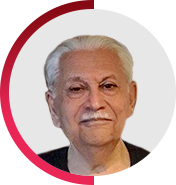
Zahid Hoosein Gangjee | MSc
BSc (Psychology), MSc (Applied Psychology), Fellow, Indian Institute of Management, Ahmadabad | Chief Executive, “Zahid Gangjee and Associates: Organisation and HR Consultancy”, helping organisations, groups & individuals manage change | Since 1977, directed / staffed Group Relations Conferences in India and abroad | Taught behavioural science at two institutions in India and been a senior manager with two large Indian organisations | Fellow, Coaching Foundation of India | Associate Member, Group Relations India | India

Carlos Remotti-Breton | MA
Organisational and leadership consultant, Strategic Leadership Module Lead, Durham Business School; Part-Time Professor IAE Business School, Executive Director, and Board Member of OPUS: an Organisation for Promoting Understanding in Society. Training candidate in psychoanalysis with the British Psychoanalytic Association (BPA); Member of the A. K. Rice Institute for the Study of Social Systems and ISPSO (International Society for the Psychoanalytic Study of Organizations). Fellow of Harvard Institute of Coaching and international group relations practitioner. He is an experienced Social Dreaming practitioner and has hosted The London Social Dreaming Hub since 2020. UK.
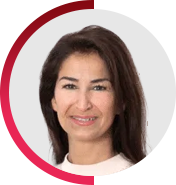
Nadine Tchelebi | PhD
Systems-Psychodynamics of Organisations and Groups | Organisational Development Consultant | Expertise: group decision-making processes in organisations | Former Senior Lecturer Bristol Business School, INSEAD Fontainebleau | Former Editor “Organisational & Social Dynamics” | Former Tavistock group relations consultant | Former member of ISPSO (International Society for the Psychoanalytic Study of Organisations), DGGO (German Society for Group and Organisational Dynamics). | Germany
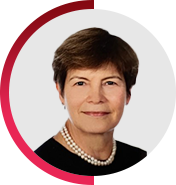
Dorothee von Tippelskirch-Eissing | Dr. phil., Dipl. Psych.
Psychoanalyst in private practice, Supervisor and Training Analyst (DPV/IPA) | Incoming president of the German Psychoanalytic Association (DPV / IPA) | Member of the Karl-Abraham-Institute, Berlin Psychoanalytic Institute (BPI), and its former chairperson | Member of the Board of Partners in Confronting Collective Atrocities (PCCA), and its former Chairperson | Germany

ABOUT PCCA
PARTNERS IN CONFRONTING COLLECTIVE ATROCITIES works towards developing strategies to engage with the legacy of past atrocities that can contribute to opening up the possibility of a more hopeful future.
The aim of the organization is to work through the effects of the Holocaust and of past and present national and international conflicts that lead to destructive escalation, in the service of a better understanding among national groups worldwide.
PCCA was the recipient of the 2019 Sigourney award for its work in pioneering community-based psychoanalytic/social interventions to address the residual effects of trauma and atrocities, which was recognized as an outstanding contribution to psychoanalysis and its ability to reduce human suffering and understand human affairs.
REGISTRATION
Where
The conference will be held online and will take place on Zoom.
Details will be sent to registered participants in advance of the conference.
When
The conference will begin on Friday, 6 September 2024
and end on Sunday, 8 September.
Events will take place from 13:00-19:00 BST (UK Time) each day.
A detailed timetable will be available at the beginning of the conference.
How to Register
To register for the conference, please fill out the online Registration Form.
Registration will take effect once payment has been made.
FEES
Last date for registration: Friday, 30 August 2024
Note: Early registration is advised as the number of spaces is limited.
A bursary of € 75 can be requested by participants from Eastern Europe and Developing Countries.
A reduced fee of € 100 is available for students until 15.07.24.
Methods of Payment
Payment can be made:
By credit card online
By credit card over the telephone
Cancellation Policy
Notice of cancellation will incur cancellation charges as detailed below:
Until 15.07.2024 – € 75
16.07.24 – 30.08.24 – € 150
After 30.08.24 – € 225
Previous participants of PCCA Conferences have said:
SPONSORING ORGANISATIONS

